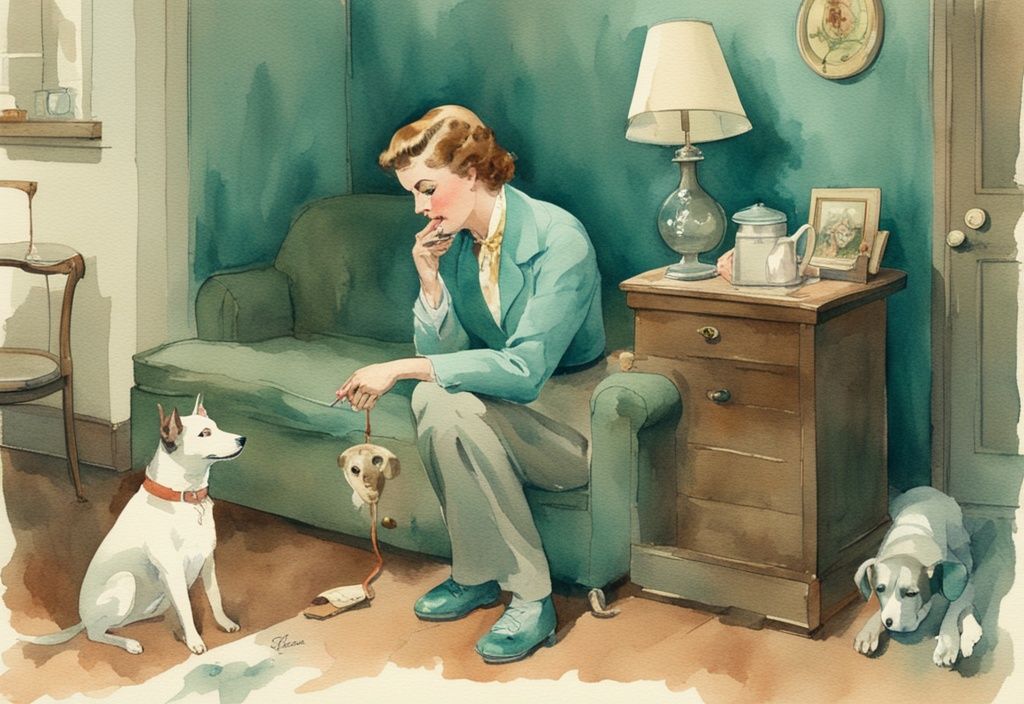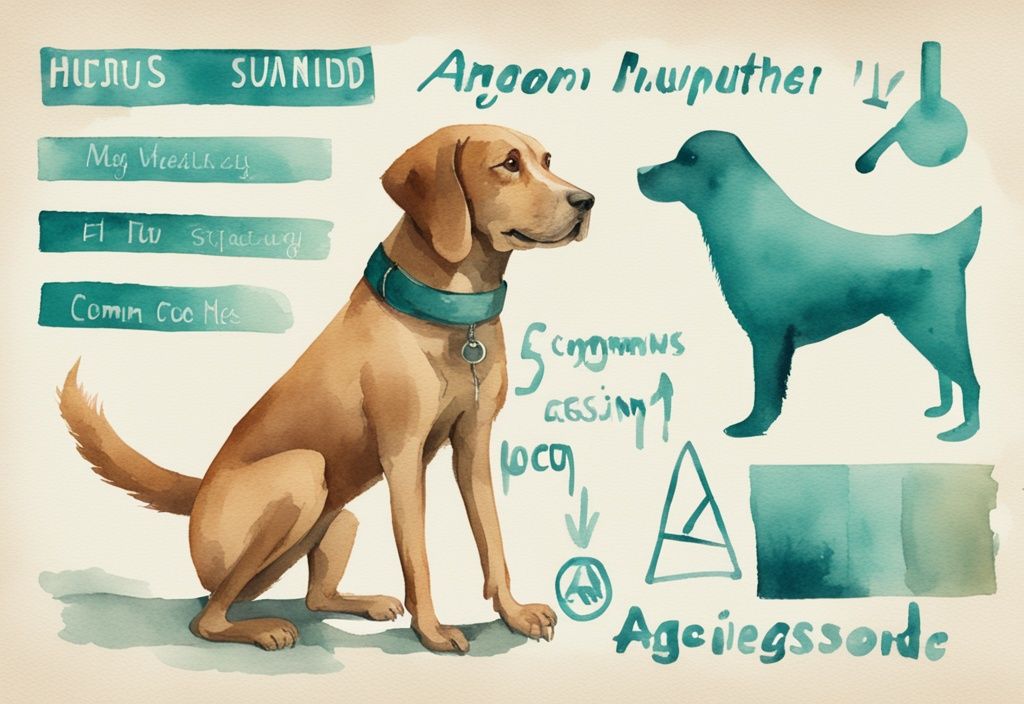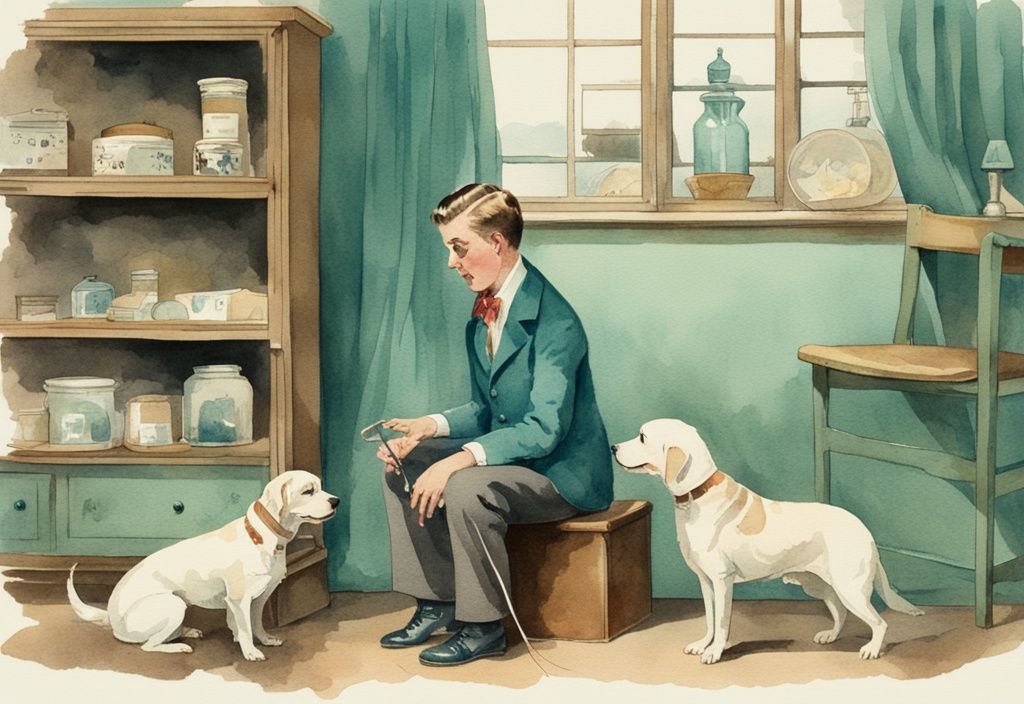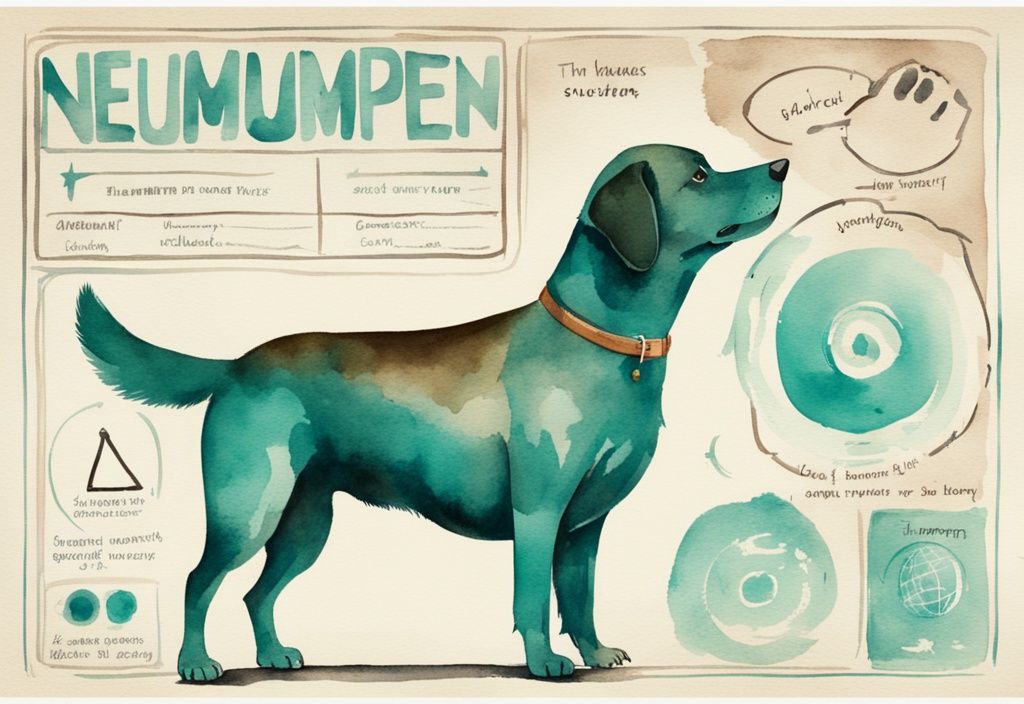Ever wondered why your pup has suddenly turned aggressive or started leaving their mark around the house? It could be a signal your furry friend is ready to be neutered. As a devoted pet parent, you yearn to understand your dog’s actions and health as intimately as possible. And really, who wouldn’t? It’s often mystifying how an overnight change in your dog’s behavior can be a clear sign they need to be neutered.
In this article, we’ll unwrap such bewildering behaviors and shed light on excruciatingly precise signs your dog might give when they’re ready for a snip. From unending wanderlust to mood swings, we’ll guide you through it all.
It’s more than just good doggo manners, it’s about maximizing your pet’s health and happiness, ensuring a long and fulfilled life. Trust me, I’ve walked a mile in your shoes and this guide will help you make informed decisions for your dog.
Behavioral Signs Your Dog Needs to Be Neutered
Understanding the behavioral signs your dog needs to be neutered can help create a harmonious home. Let’s dive into some common indicators.
Increased Indoor Marking
One unmistakable sign your dog needs to be neutered is increased indoor marking with urine. Imagine coming home, only to be greeted by that strong, unpleasant smell scattered around the house. Dogs, driven by testosterone, mark their territory to assert dominance and communicate their presence. Neutering your dog can often reduce, if not eliminate, this territorial marking, giving you a cleaner, nicer-smelling living space. Trust me, your houseplants and furniture will thank you!
Excessive Roaming Behavior
Does your dog have a natural knack for escapades? Excessive roaming can be a significant sign your dog needs to be neutered. Driven by hormones, unneutered dogs often feel the call to adventure, searching for a female in heat. This roaming isn’t just an inconvenience—it poses real risks, like accidents, fights with other animals, or even getting lost. Neutering helps curb this wanderlust, keeping your furry friend closer to home and ensuring their safety. Plus, fewer heart-stopping moments when you realize the backyard gate was left open.

Frequent Humping or Mounting
Ever found yourself in an awkward moment when your dog decides to hump or mount an unsuspecting guest? Frequent humping or mounting can be an indication of high testosterone levels. While somewhat natural, this behavior can become problematic. Neutering helps to mitigate these tendencies by lowering testosterone levels, making your dog more calm and manageable during social interactions.
Better for everyone involved, don’t you think?
Abnormal Aggression
Nobody likes a constantly angry pup. Elevated testosterone levels often result in abnormal aggression, which can be a serious sign your dog needs to be neutered. This aggression can pose significant risks to other pets, humans, and the dog itself, leading to fights or injuries. Neutering helps reduce these aggressive behaviors, creating a safer environment for everyone. Think of it as peacekeeping, doggy-style.
Increased Territorial Marking
Unneutered dogs often have strong territorial instincts, leading to increased marking both indoors and outdoors. This can become especially noticeable when other animals or unfamiliar scents are around. If you notice that my dog is shaking and acting weird all of a sudden, it may be related to this behavior. Typically involving urinating on objects to establish dominance, this behavior can become quite an issue.
my dog is shaking and acting weird all of a sudden Neutering your dog often lessens this territorial marking, promoting better behavior and a cleaner living space. It’s a win-win for you and your four-legged friend!
Health-Related Signs Your Dog Needs to Be Neutered
As a devoted dog parent, recognizing health-related signs that your dog needs to be neutered is crucial. Let’s dive into some key health indicators that suggest it might be time for this important procedure.
Problems with Prostate Gland
An enlarged prostate gland can be quite troubling for unneutered dogs, leading to discomfort during urination or defecation. Have you noticed your furry friend experiencing pain while walking or having constipation? Maybe you’ve seen blood in the urine or ribbon-like stools? These symptoms might indicate prostate enlargement. Neutering plays a vital role here, as it reduces hormone levels that contribute to prostate issues. Addressing this early on through neutering can substantially improve your dog’s quality of life, preventing future complications and ensuring they stay happy and healthy.
Testicular Irregularities
Keep an eye out for any unusual signs related to your dog’s testicles. Differing sizes of testicles, an enlarged scrotum, excessive pigmentation in the scrotal area, and thinning scrotal skin can indicate testicular cancer or other abnormalities. These are significant health concerns you just can’t ignore. Through neutering, you can prevent the development of testicular cancer and related issues. By choosing to neuter your dog, you’re eliminating the risk of these serious problems, ensuring your furry pal remains in good health.
Presence of Cancerous Symptoms
Always be vigilant for signs of cancer in your dog, which may include unexplained weight loss, behavioral changes, or visible lumps. These symptoms are quite serious and demand immediate attention. Catching cancerous symptoms early is crucial, and this is where neutering can be incredibly beneficial. It helps prevent certain cancers linked to the reproductive organs. Regular veterinary check-ups are essential for spotting these signs early on, allowing for timely intervention. Neutering is a proactive step, significantly reducing cancer risks and ensuring your dog’s well-being.
When Should You Neuter Your Dog?
Deciding on the right time to neuter your dog is crucial. Let’s delve into the signs and timing to make this important decision easier for you and your furry friend.

Best Time to Neuter Your Puppy
You’ll notice signs your dog needs to be neutered often align with key growth stages in their life, so timing is everything. Consulting your veterinarian can provide personalized guidance based on your dog’s breed and overall health. Generally, most dogs are neutered between 6 to 9 months of age. However, for larger breeds, waiting until they are 12 to 14 months old might be more beneficial. Timely neutering can help curb undesirable behaviors, such as territorial marking or aggression, and alleviate potential health risks.
Understanding the Legal Requirements
Being aware of local laws regarding pet sterilization is a vital part of responsible dog ownership. Some areas have legal stipulations for neutering aimed at controlling the pet population and promoting healthier, happier pets. For instance, in Los Angeles County, pets must be sterilized by four months of age, with certain exceptions. Staying informed and compliant with your region’s legal guidelines not only helps you avoid legal hassles but also underscores your commitment to ethical pet care. Recognizing the signs your dog needs to be neutered encompasses health, behavior, and your role as a conscientious pet owner in society.
Discussing the Signs with a Veterinarian
Understanding the various signs that your dog might need to be neutered is essential, and discussing these signs with a veterinarian can provide clarity. Consulting with a vet ensures that the decision is both well-informed and in the best interest of your dog’s health.
Knowing Risks Associated with Neutering
Though neutering is a fairly routine procedure, it does come with its own set of risks. These can include surgical complications and potential reactions to anesthesia. The risk level can differ based on your dog’s age, breed, and current health condition. A heartfelt talk with your veterinarian will give you a thorough understanding of these risks as they apply specifically to your furry friend. This conversation helps ensure you’re fully aware of both the benefits and potential drawbacks before making a decision.
What to Discuss in Your Vet Appointments
During vet appointments, it’s vital to discuss any noticeable signs that your dog might need to be neutered. Look out for behavioral cues such as increased marking, roaming, humping, or even aggression. On the health front, concerns like prostate issues or testicular abnormalities are significant points to bring up. A candid discussion covering your dog’s medical history, breed traits, and any troubling behaviors can help your vet provide tailored advice suited to your pet’s unique needs.
It’s also important to delve into the pros and cons of neutering and the necessary care post-surgery. Through these thorough conversations, you ensure that you’re making the best possible choice for your dog’s overall health and happiness.
Post-Neutering Care and Behavioral Adjustments
Post-neutering care is an essential part of ensuring your fur baby’s recovery is smooth and complication-free. This section covers everything you need to know about managing post-surgery discomfort, preventing infections, and making necessary lifestyle changes for your dog after neutering.
Managing Post-Neutering Discomfort
Recovery is a critical period for ensuring your dog transitions smoothly after neutering. To manage discomfort, administer pain relief medication precisely as prescribed by your veterinarian. A tranquil and comfortable space is essential for your dog to rest and recover, free from distractions and stress.
Physical activities should be minimized to prevent undue strain on the surgical site. Make sure your dog maintains a calm and relaxed state until fully healed, which will foster quicker and more efficient recovery.

Preventing and Monitoring for Infections
Vigilance in monitoring the surgical area is paramount to prevent infections, one of the key signs your dog needs to be neutered. Look for indications such as redness, swelling, or unusual discharge.
Following your vet’s guidelines for wound care is crucial—keep the area clean and dry to fend off infections.
If you observe any alarming signs or changes in the surgical site, seek immediate veterinary attention. Early detection and prompt action can prevent complications and ensure a smooth recovery process.
Lifestyle Changes Post-Neutering
Post-neutering adjustments are necessary for maintaining your dog’s health and well-being. One significant change will be dietary adjustments to prevent weight gain, as metabolism tends to slow down after neutering.
Monitor your dog’s food intake and consult your veterinarian for dietary recommendations tailored to your dog’s new lifestyle.
Gradually reintroduce exercise routines once your vet confirms it’s safe to do so, maintaining a healthy balance of activity. Continued training and positive behavior reinforcement are crucial to ensure your dog remains well-adjusted and responsive.
Reinforcing training helps mitigate residual behavioral issues and fosters a healthy coexistence.
Frequently Asked Questions
Will neutering stop my dog from marking indoors?
Neutering can often be a game-changer when it comes to indoor marking. By reducing testosterone levels, it lessens the urge to mark territories inside your home. It’s most effective if done before marking becomes a regular habit. Of course, every dog is different, so you might need a little extra help with training and positive reinforcement to fully kick the habit.
Any potential risks with dog neutering?
Even though neutering comes with its benefits, it’s important to be aware of the risks. Some potential issues include surgical complications, infections, and reactions to anesthesia. Always have a chat with your vet about your dog’s specific health and risk factors to make sure you’re making the best decision together. Despite these concerns, the health perks of neutering generally outweigh the risks.
How to care for my dog after neutering surgery?
Post-surgery care is crucial. Your vet will provide guidelines for pain management and wound care. Keep your dog’s activity to a minimum to avoid putting strain on the surgical site. Watch out for any signs of infection and use a cone if recommended to stop your pup from licking the incision. It’s all about ensuring a smooth, speedy recovery.
Will neutering modify my dog’s behavior?
Neutering can impact behavior, especially those fueled by testosterone like marking, aggression, and roaming. However, not all behavioral issues will vanish overnight. Patience is key, along with continuous training and behavior modification techniques to address any leftover behavioral quirks.
